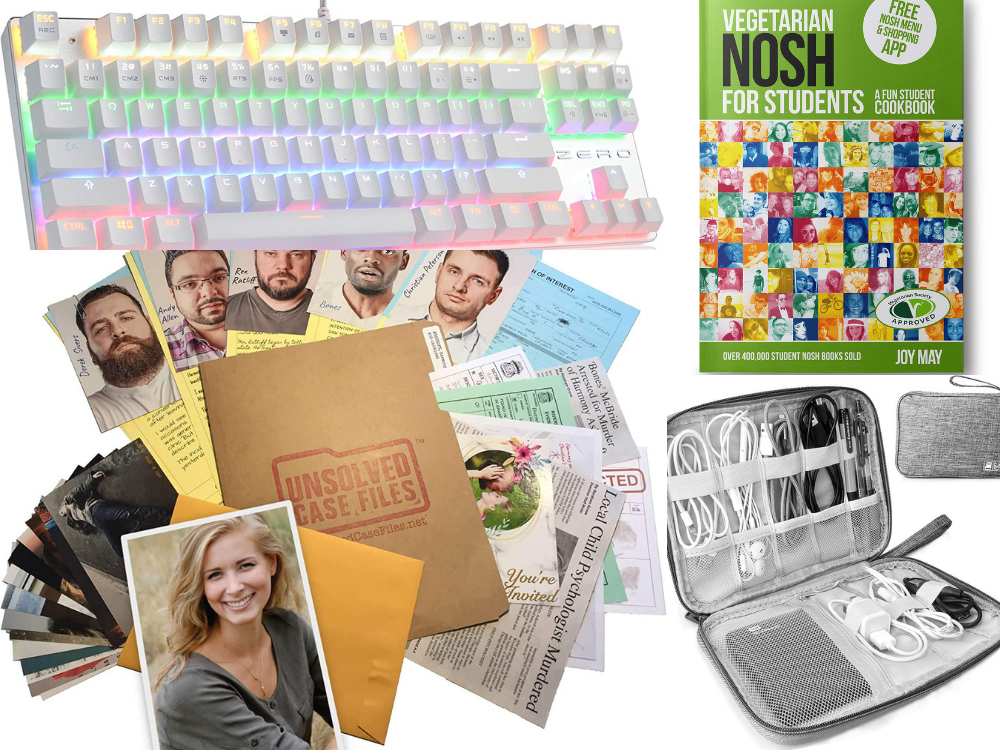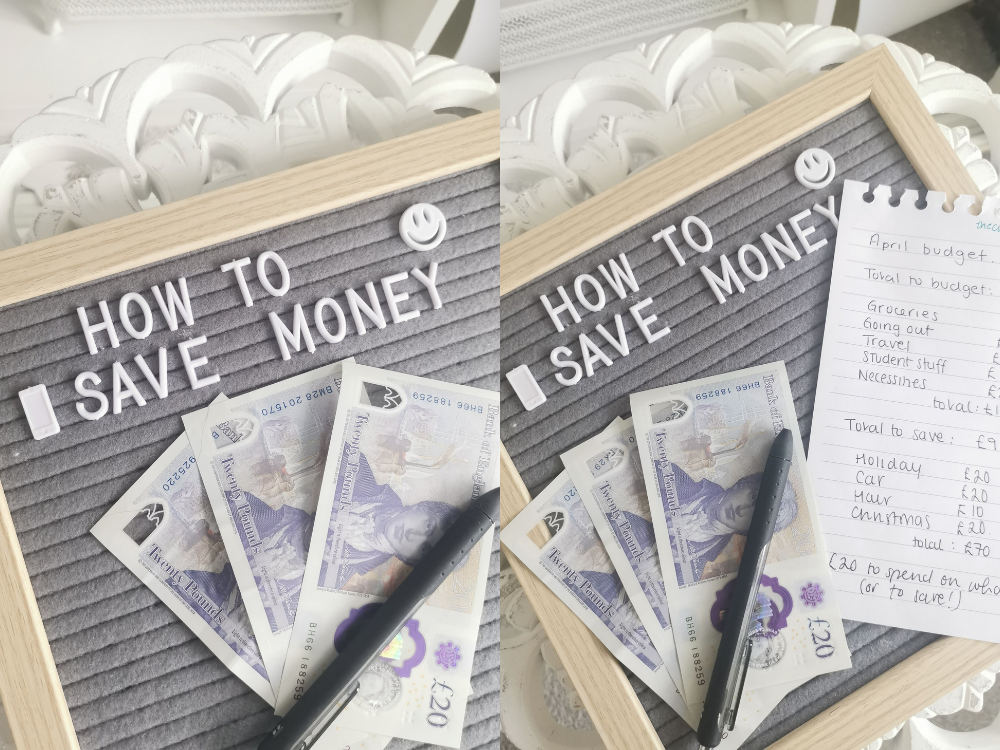This post is all about how to get straight As in A-levels.
We’ll be teaching you how to secure those As or whatever grade you want for your A-levels through organisation and awesome revision techniques.

A-levels were the most difficult exam season I have ever completed (and I have a Chemistry degree!) The amount of work and time you have to dedicate to each subject is a full time job in itself, so when you have three to revise for it’s almost impossible to achieve. I said almost because it is possible to get the grades you need, with dedication and this guide. Now you may not be aiming for all As but the steps in this guide will ensure you succeed. Here’s how to Study and How to Get Straight As in A-Levels: Science Edition.
I took Chemistry and Biology as 2/3 of my A-level options and they required so much attention, especially biology. Therefore I am saying this in the kindest way possible….
GET RID OF YOUR PHONE AND ANY DISTRACTIONS OTHERWISE YOU’LL FAIL
Okay that was a bit dramatic but all jokes aside, your phone is a massive distraction and you will not preform as well as you would like to if you don’t leave it alone.
During my A-levels I used the app Forest (read about it here in my Free Apps that increase your productivity) which stopped me from going on my phone. You’ll also have to turn off whatsapp on your macbook and facebook notifications. Apps consume so much of our time, it’s ridiculous and not needed in A-levels, thank you very much.
Now you have gotten rid of these distractions, how are you supposed to revise and get straight As? Here are my magical steps.
1) Get Organised
My bullet journal saved my academic life therefore, I cannot express this point enough. Due to the heavy workload you’ll need some sort of calendar/ diary to plot out your revision. During my A-levels I scheduled a topic per day for both chemistry and biology and once the course was completed I’d start over again. My bullet journal was an excellent tool which helped me out. If you don’t know what a bullet journal is or how to start one, click here for my guide! You’ll also need a planner to help you keep track of all assignments, homework and work you are doing as you revise as well as, other social commitments (or work…. boo.)
Make sure you carve out an extra hour or so a day (not including your free periods) to catch up on any notes. Make sure you never go into a new week with uncompleted notes/ work from the previous week because let me tell you, it will snowball out of control.
This academic planner looks amazing (better than what your school will give you) and is totally worth checking out. It has great organisers within and will help you stay on track of most things.
It also comes in multiple designs if this one is not to your liking.
2) Make A Timetable

As briefly mentioned above, timetables are a great way for you to stay on track and make sure everything is done before the exam. Be realistic though; you can’t thoroughly go over the whole of unit 4 chemistry in an hour. Make sure every minute of your revision time is accounted for and squeeze in 20 minute breaks as well, which is highly important. Make sure to prioritise the subjects you find the most difficult as these will need more time to understand and revise.
Before exam season your timetable can be used for note preparation and homework. This makes sure you have everything completed before the mad revision rush.
I strongly recommend placing your timetable somewhere where you can see it constantly. This means you are less likely to procrastinate because you are staring at it lol.
These wall planners are an amazing tool for doing just that.
Click here to find out how to get straight As in any subject!
Click here for more student content!
3) Implement these Revision Techniques
These revision tips suit all types of learners; no matter which learner you are there are a few revision tips for you. These revision techniques can be implemented during the note-taking stage (eg. as you are first learning the content) or during exam season. Of course doing these things before exam season can save a lot of time, they can still be implemented during exam season as they are all great information and factual recall techniques.
Flashcards
Throughout my A-levels to the completion of my degree, flashcards were used religiously. These are a great tool for factual recall, equations and exam style questions. Go through all of your notes, textbooks and exam questions and ask yourself questions on one side of the flashcard and then put the answer on the other side.
For example, biology has a bunch of terms and processes such as, the Kelvin Cycle. What I would do was put ‘describe the Kelvin Cycle’ on one side and then a descriptor/ diagram on the other side.
I made these packs a month or so before the exam (they take forever, so start early) and would carry them around with me everywhere to test myself whenever I had a spare minute.
I had these great ring-binders which held my flashcards (they are currently £0.89p for 100!) which allowed skipping through the flashcards easily and I could separate them by topic.
Need more stationery inspo? Check out ‘the best college stationery list for 2020′ here.
Voice Notes
If you are an audio-learner, recording yourself speaking your notes is a great way to revise. It makes sure you understand the content as you are speaking it aloud but also has you speaking the content before you hear it. You can effectively revise whilst brushing your teeth, on your walk to school and whilst shopping.
For example, after you have learnt all about fractional distillation, go home, describe it to yourself over and over again for about ten minutes and then record yourself saying it. Therefore, when exam season is approaching you have already described it in a way you understand and listening to it will refresh your memory.
Mind Maps
An old GCSE fave that really works. This method helps you organise your thought process. These are really good for brainstorming that dreaded biology unit 5 essay and applying your knowledge through the whole of Chemistry. I used to buy this A3 paper from Amazon and draw mind maps for every sub-topic, making sure that I remembered everything as I drew them so many times. Also with a mind-map you can see how easily everything links which helps in the application questions.
I recommend making a master mind map whilst looking at your notes and then emulating that over and over again without looking at your notes.
Repetition
I bought a big whiteboard and pens (again from Amazon) for the repetition technique (this saved me a bunch of paper.) I mainly used this technique for chemistry equations and biology processes such as, the heart and menstruation (oh god, and all of the cycles o_o; yes my mind has blocked out those horrors.) This will also be great for maths and physics for all of the graphs and diagrams that need to be drawn. I love whiteboards because they’re so simple to write things down on and rub them out again. The more you write them down, the better your memory is.
Colour Code
Colour coding really is a great way on how to get straight As in your A-levels. Assigning different colours in your notes and mind maps helps you distinguish between key pieces of information. For example, assign blue for key definitions (did you know you are most likely to remember things more if you write in a blue pen?), pink for equations and green for processes. These £3 staedtler pens are so affordable and I used them religiously. I also LOVED the Stabilo pastel highlighters!
Past paper questions
The best tool out there. These questions help you get to grips with how the examiner is going to ask questions and how they want them answered. Make sure to do every past paper and really understand how the examiner wants them answered. Read the question carefully because one slight word change can have you dropping those all important marks. I had a past paper tracker that helped me keep track of my grades, which also really helped.
Remember
Please remember to take breaks. Your brain needs time for everything to sink in. You are not a machine and cannot be sitting at a desk for 5 hours straight; it’s not healthy for your mental health. Every hour or so get up and take a walk (or go to Starbucks like i did!) Reward yourself every night with an episode of your favourite netflix show and take a long bath. Get to the gym and take out your frustration on magnets on the treadmill. You will be in such a better headspace to do well if you are happy. Self care, baby.
The key on how to get straight As in A-levels really does lie within this post. You need to really find it within yourself to stick to it and utilise every resource given to you. Keep the end point in site because you will get there. Your hard work will pay off.
Good luck!
WANT SOME MORE STUDENT POSTS?























Can i know what is the past paper planner?
Ur post is great!